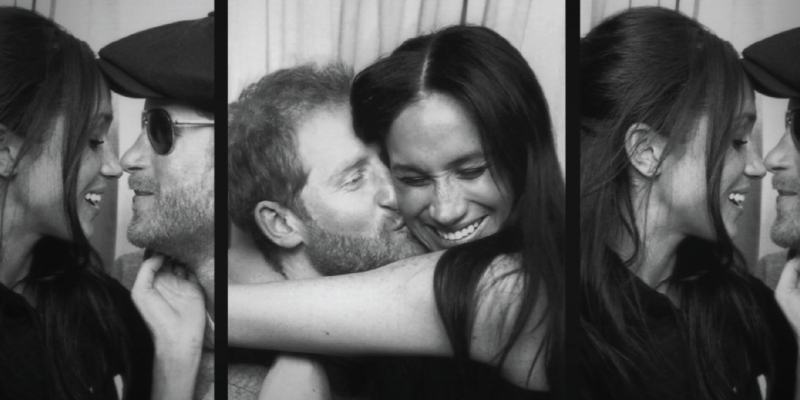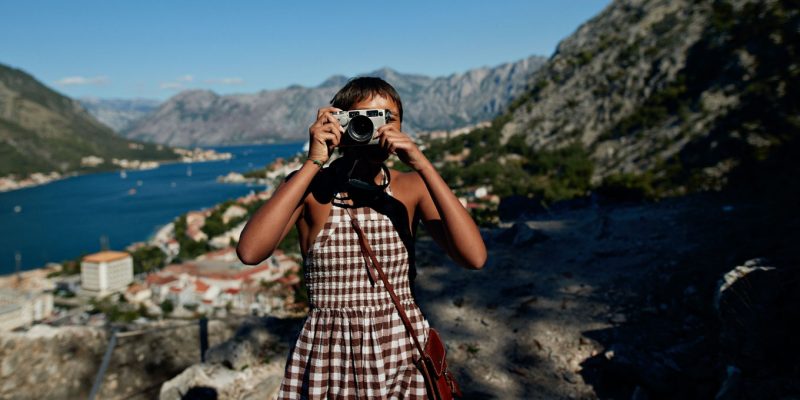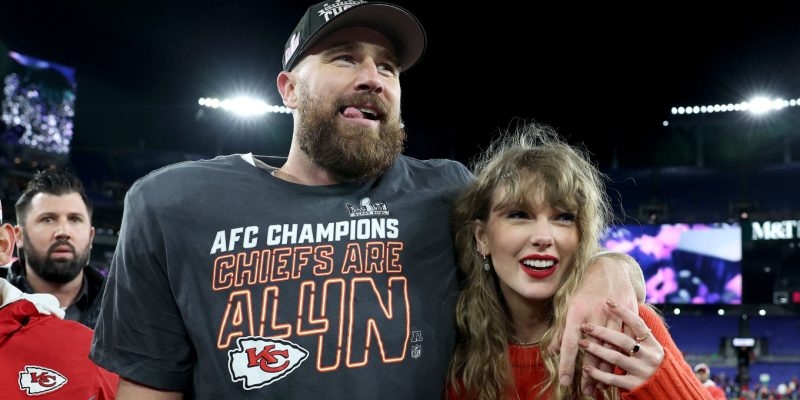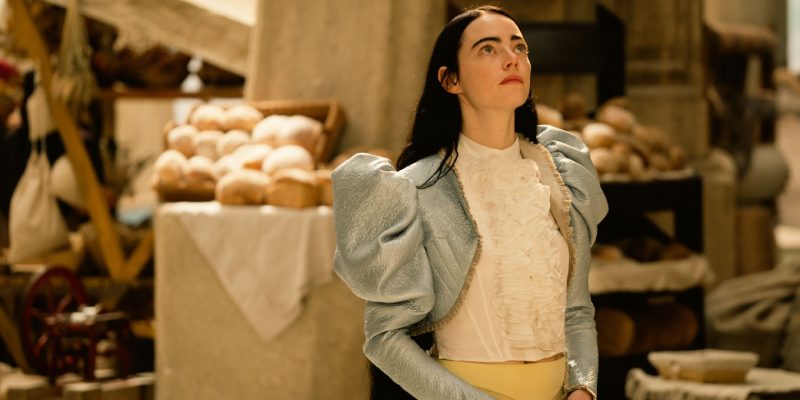Culture
Every item on this page was chosen by an ELLE Canada editor. We may earn commission on some of the items you choose to buy.
Minnie Driver Teaches Us What’s Really Important in Life
Driver's new memoir, Managing Expectations, is a journey of laughter, adventure, love and loss.
by : Joanna Fox- May 16th, 2022

Williams & Hirakwa (M. Driver)
About an hour before I speak with multi-talented British actor, singer-songwriter and now author Minnie Driver, I finish reading the final chapter of her book. It takes the reader through Driver’s touching last days with her mother, who’d been diagnosed with terminal cancer. I cry reading the closing pages while Driver grapples with the reality that life is finite, her words stirring in me the realization that I am completely unprepared to even think about the inevitable passing of my own mother and how I would not know how to exist without her. When Driver appears on my screen from her home in L.A., I still have that knot in my chest. I choke on my words as I tell her that I am so sorry for her loss. She thanks me and then sighs, her own voice slightly shaky. “It’s Mother’s Day in England this coming Sunday, and you just get blasted by these firsts,” she says. “Our first birthdays in the world without her, her first birthday without her, the day that she died, Mother’s Day…it’s crazy. You have to take a lot of blows, subsequently. It’s been hard. Plus, she’s not there to talk about it all with. It’s very strange.”
Driver began writing Managing Expectations—which chronicles stories from her life, from growing up with divorced parents and the awkwardness of youth to navigating the emotions of failure, success and love and unravelling the knotty mess of it all—at the onset of the pandemic. It was about a year before her mother passed away from cancer. “I was sending pages to Mum, pages and bits and stories, and she read the first four [chapters] and loved them,” says Driver. “They really made her laugh, and she was a tough barometer. I would know about it if she didn’t like something. So it’s always gratifying to me that she read [some of it] and she knew the direction it was going in.”
It’s not a celebrity memoir about Driver being catapulted to fame after her starring role in Good Will Hunting and the ensuing years of glitz and glamour (including Oscar, Golden Globe, Emmy and SAG nods), but, rather, it’s an unpretentious, relatable and very real journey through her life, complete with humour, wit, self-doubt and discovery. “I wanted to tell a rambling story about the messy business of being alive and how that applies to everybody and anybody, whether you live in a small town in Canada, whether you grew up in the Caribbean or London, whether you became an actress or a schoolteacher,” says Driver. “We all share the same indignity of heartbreak, of grief, of love, of joy—we do the same shit no matter how it looks from the outside.”
 Williams & Hirakwa
Williams & HirakwaThough far from being a salacious tell-all, Driver’s book is still filled with deeply personal, intimate snapshots, including a surreal layover alone in a Miami hotel when she was only 11 years old; time she spent hiding from reality and a flailing career in a beach town in Uruguay; events that led her to a chance audition for Good Will Hunting; and the strangest but most romantic (and law-breaking) first date with her now fiancé, American filmmaker Addison O’Dea. I ask Driver if, as someone whose entire career thus far has played out under the watchful eye of the media, releasing all this information into the world makes her nervous. “It really does,” she says. “There’s that trepidation, which I was keenly aware of when I was writing [this book]. But most of these are stories that I have been telling for years. And then there are other ones that only a few people lived through with me. I’ve definitely had their eyes on things. There were versions of Mum dying that I realized were not for public consumption, and you just kind of have to write your way to a place where you feel confident about sharing it.”
Driver reminds me that she got famous at a time when the media had the last word, so now, by putting out these stories, by owning this memoir, she’s taking control of her own narrative. And as someone who runs her own social media, Driver has a way to speak out if she wants or needs to. “It feels weirdly safe knowing that I have this platform if people want to hear my point of view on a story or how the media is metabolizing something; [I’m] slightly more empowered than I was before,” she says. “Nonetheless, I’ve put beautiful things out into the world that have been eviscerated by the press before. As an artist, you offer these things up, and some of them connect and some of them don’t. I signed up to create and put content out into the world. People will like it, and people will not like it. It hasn’t seemed to stop me from doing it,” she adds with a laugh.
Driver has two new movies coming up: Rosaline, a reimagining of the classic Romeo and Juliet story, and Chevalier, a biographical period drama about French-Caribbean composer and musician Chevalier de Saint-Georges opposite Lucy Boynton. She’s also reprising her role as talent agent Cath in season two of the hilarious HBO Max British hit Starstruck, and her podcast, Minnie Questions with Minnie Driver—on which she has interviewed the likes of Viola Davis, Cindy Crawford, Ronan Farrow and Chelsea Clinton— began airing its second season in January of this year. On her podcast, Driver asks all her guests the same seven questions (inspired by Vanity Fair’s long-running Proust Questionnaire feature), yet the conversations that ensue are all so different and go in totally unexpected directions. It offers insight into Driver’s inquisitive spirit, quick mind and love of meandering conversation.
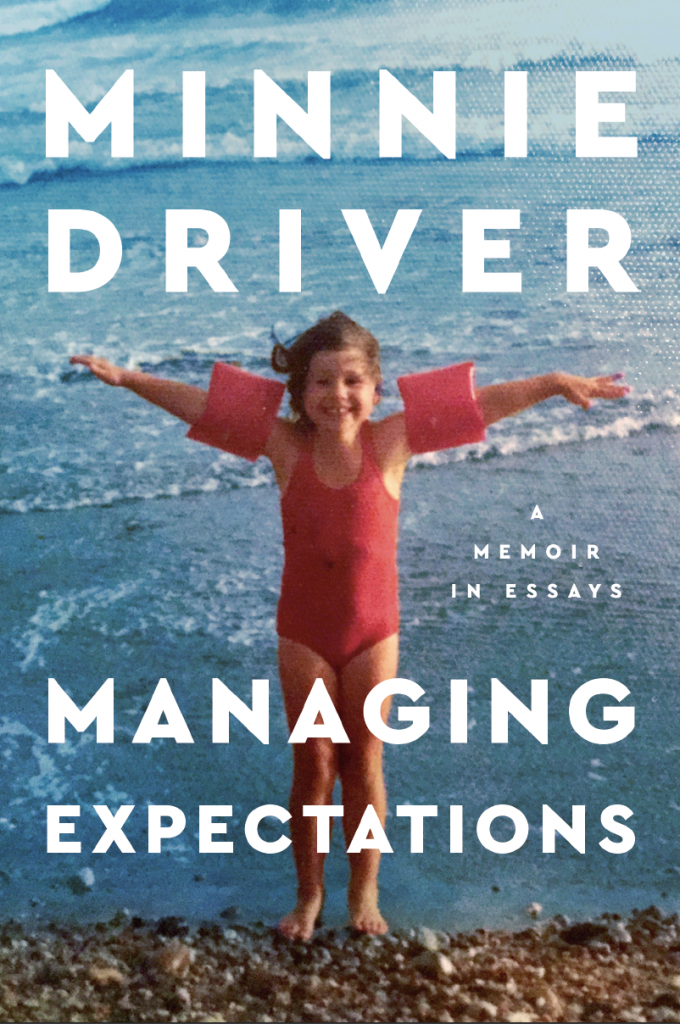
The thoughts and ideas expressed in Managing Expectations and what transpires on her podcast seem intrinsically linked. “I think that it all comes from the same font—it really is the same well, that curiosity and interrogation about the human experience,” says Driver. “And I think, honestly, Mummy dying knocked that home. And maybe it’s only when you lose someone that you really realize that you don’t just say that life is very short—you feel it. I don’t know what happens afterwards, but this ends. There is a timer on it, and it suddenly felt so important just to focus on the things that are interesting and beautiful and rare and not waste any time worrying about the extra 10 pounds, the frustration with bureaucracy, the kids not getting A’s in school—whatever it is that we worry about.”
Speaking with Driver makes me realize how calm and clear she is at this point in her life. She’s assertive and confident and knows exactly what she wants, what she holds dear and what she can definitely do without. It’s empowering to witness, but I know that it took a devastating, heartbreaking event for her to make her way to that place. “I feel like we’re all—me included—so frightened of ever talking about death or really examining it,” she says. “But it is the great clarifier. Grief is the most extraordinary teacher. It was beautiful watching my mother die, however utterly awful it was. I know not everyone has that experience with death, but the gift it has given me is clarity [and the desire] to not waste any time with people or things that don’t support something creative, positive, kind, clever or funny.”
During my conversation with her that early spring day, Driver said something that stuck with me. She was talking about what’s actually important when it comes to being an artist. “It’s not about money or fame or whatever these terrible benchmarks are,” she told me. “It’s about how much you pay attention to the life that you are living and how much we can share that together.”
Managing Expectations is available to purchase here.
Newsletter
Join our mailing list for the latest and biggest in fashion trends, beauty, culture and celebrity.
Read Next

Fashion
This Canadian Swimwear Brand Designed Canada’s 2024 Women’s Olympic Beach Volleyball Team Uniforms
And they're *so* good.
by : Allie Turner- Apr 24th, 2024
Fashion
The Most Iconic Looks In Met Gala History, From 1973 To Now
40 years of the night that's all about trailblazing fashion.
by : ELLE Australia- Apr 24th, 2024

Beauty
Summer Prep: How to Feel Confident in Your Swimsuit
New Size-Inclusive Swimwear: Gillette Venus partners with The Saltwater Collective to Launch a Collection for Any Body
by : ELLE Canada- Apr 24th, 2024

